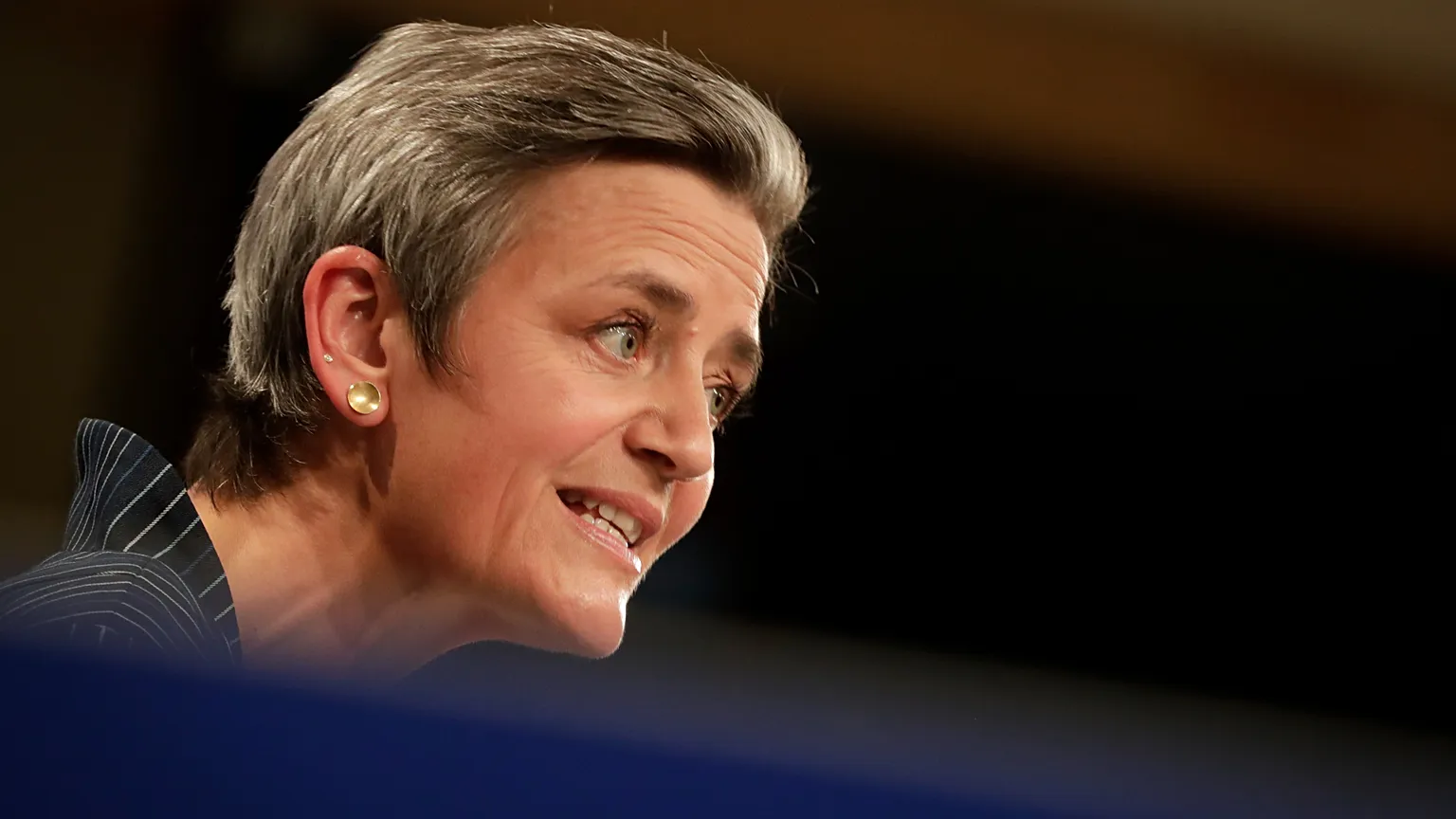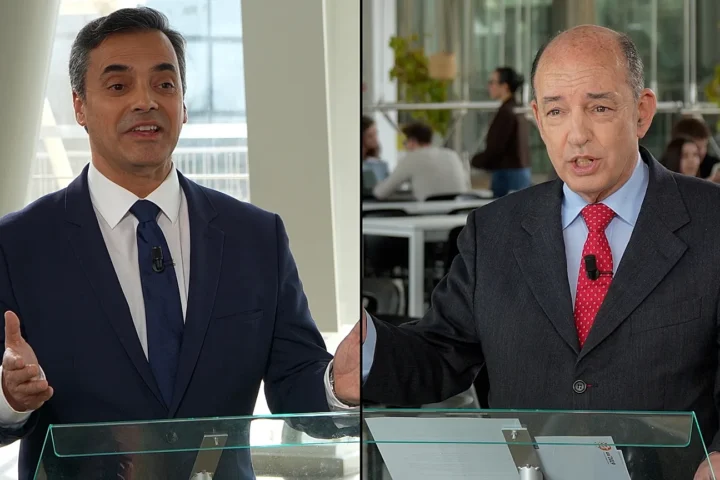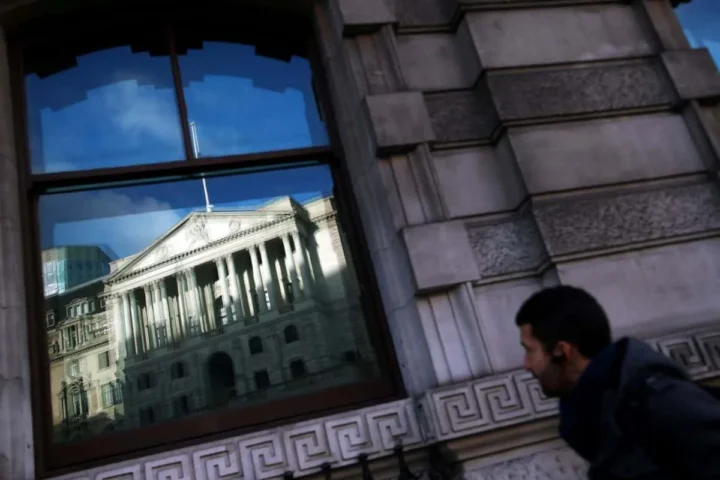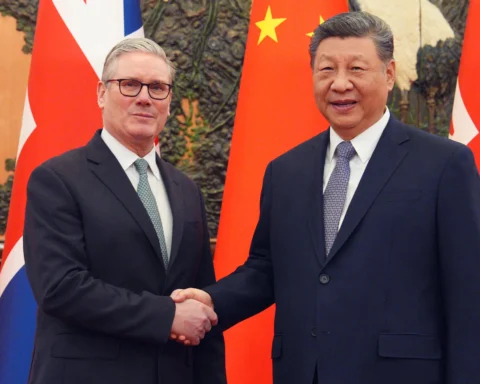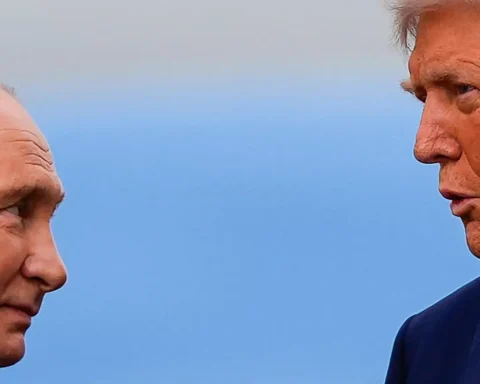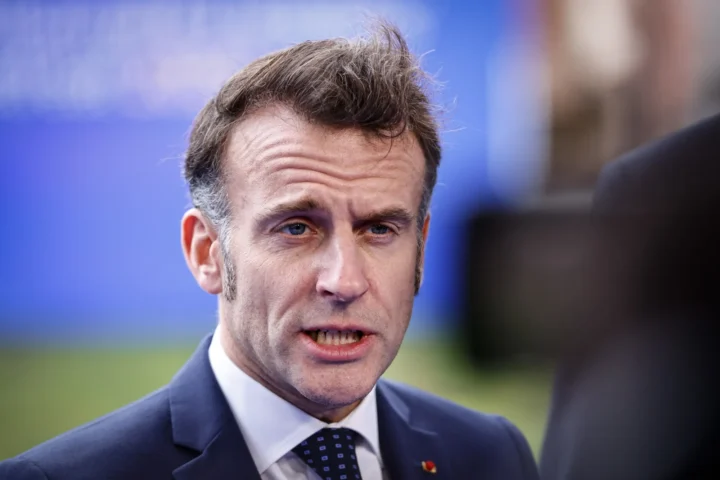Former EU Commissioner and long-serving digital competition chief Margrethe Vestager has urged the European Union to maintain its tough, principled stance on digital regulation amid growing U.S. pressure to relax enforcement in exchange for tariff concessions.
Speaking to reporters in a new interview with Euronews’ Europe Today, Vestager delivered one of her clearest messages yet since leaving office: Europe must not dilute its digital rules, its enforcement standards, or its consumer protections — even if it faces economic pressure from Washington.
Her remarks arrive at a critical moment for transatlantic trade relations, where the United States has signaled interest in reducing tariffs on certain EU exports, but reportedly wants Europe to apply a “softer” approach to enforcement of landmark regulations such as the Digital Markets Act (DMA), Digital Services Act (DSA), and EU competition rules targeting Big Tech.
To Vestager, such compromises are unacceptable.
“Rules define the single market. We must defend them.”
Vestager warned that the EU’s digital regulatory framework — built over a decade — is not a bargaining chip to be traded for short-term relief.
In her interview, she stressed:
- “Europe has set global standards. Weakening them would harm European consumers.”
- “Our rules exist to protect fairness, competition, and innovation — not to be negotiated away.”
- “Tariffs come and go. Strong digital protections must remain.”
Her comments underline growing unease in Brussels that U.S. trade negotiators may be pressuring the EU to curb investigations into American tech giants, especially as several DMA compliance deadlines and antitrust cases approach.
Vestager emphasized that the DMA and DSA were created to ensure:
- A level playing field for European companies
- Transparency and accountability from Big Tech
- Protection from monopolistic behavior
- Stronger digital rights for EU citizens
Weakening enforcement, she said, would undermine the EU’s competitive landscape and send the wrong message to global partners.
A Changing Transatlantic Dynamic
The U.S.–EU digital relationship is entering a tense phase:
1. Multiple American tech giants are facing DMA enforcement
Apple, Meta, Amazon, Google, and others are already under investigation for potential non-compliance.
2. The U.S. views the DMA as disproportionately targeting American firms
Washington has expressed concerns that Europe’s rules unfairly impact U.S. technology leaders.
3. Trade negotiations are underway
The Biden administration has floated tariff reductions on steel, aluminum, and industrial goods — but with digital regulatory “adjustments” as part of the conversation.
4. Europe’s digital sovereignty agenda is accelerating
EU leaders want to protect European data, European businesses, and European consumers — and reduce dependency on foreign digital giants.
Vestager’s comments reflect fears that the U.S. is seeking political leverage to influence rules it cannot shape internally.
Why Vestager’s Voice Still Matters
Although no longer the EU’s Competition Commissioner, Vestager remains:
- One of Europe’s most influential digital policy architects
- A global advocate for fair competition
- A symbol of the EU’s willingness to challenge Big Tech
- A respected voice across the European Commission and national governments
Her warnings resonate strongly at a time when policymakers are debating the EU’s strategic autonomy, industrial policy, and digital independence.
Protecting Consumers and Competition
Vestager grounded her argument in two core principles:
1. European consumers must remain protected
Digital platforms influence everything from privacy and data security to pricing and online visibility.
Weak enforcement could expose consumers to:
- Anti-competitive pricing
- Algorithmic manipulation
- Reduced privacy protections
- Dominance by a handful of global platforms
2. The EU’s single market must remain competitive
If tech giants operate outside the rules, small and mid-size European companies cannot compete. Vestager stressed that Europe’s innovation ecosystem depends on fair digital conditions.
“The world watches Europe. If we soften the rules, we weaken our leadership.”
Vestager reminded EU leaders that Europe is seen as the global pioneer in digital regulation.
Countries in:
- Latin America
- Africa
- The Middle East
- Southeast Asia
are already modeling their digital frameworks on the EU’s approach.
A retreat now, she warned, could undermine Europe’s credibility worldwide.
What Comes Next for EU–U.S. Digital Relations
Vestager’s remarks are likely to intensify internal debate within the European Commission, especially as negotiations with the U.S. continue. Key questions include:
- Will the EU prioritize long-term digital sovereignty over short-term tariff relief?
- How will Brussels balance diplomacy with its responsibility to enforce the DMA and DSA?
- Will European businesses push back against any attempt to weaken rules protecting them from monopolistic behavior?
- Will U.S. tech firms lobby even harder for exemptions or reinterpretations of EU obligations?
The answers will shape Europe’s digital landscape for the next decade.
Conclusion: A Warning Shot from Europe’s Digital Guardian
Margrethe Vestager has once again positioned herself as a defender of Europe’s digital integrity. Her message is clear:
Europe must stand firm.
Rules must be enforced.
Consumer protection is not negotiable.
In an era defined by geopolitical competition, technological power, and global economic pressure, Vestager’s warning serves as a reminder that digital rules — and the values behind them — are not just regulatory tools, but pillars of Europe’s identity and strength.
